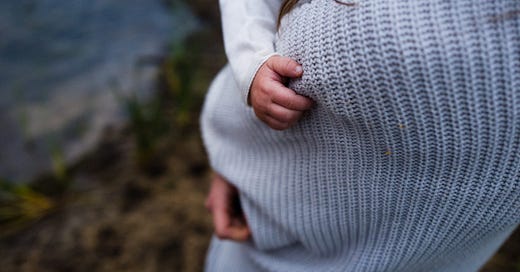This special Sunday edition of Finding Joy is reaching you because I’m a psychologist, and shrinks really like to talk about moms ;)
Today is Mother’s Day.
A day that brings many things to the surface for so many people. Very few of them can truly be captured in a card, a bouquet of flowers, or a Yankee Candle.
We may not all have the experience of being a parent, but we all have the experience of being someone’s child—fully depending on and belonging to another.
Our mothers are a part of the mysterious, magical process of becoming who we are. Their presence, their absence, their place—whatever it is—marks us.
The sometimes broken, sometimes beautiful experiences both of becoming a child and evolving as a parent are really just about learning to be more fully human. There is not a book prescription for these pieces of our identities. No identical mother-child match exists on this globe or anywhere in history. Mothers become students of their children whilst discovering and learning deep places and never-before-understood spaces of their own selves. The growth and development of a parent occurs alongside that of a child.
Mothers do many things.
Ask. Applaud. Admonish. Abandon. Abuse. Create. Comfort. Cry. Cheer. Calculate. Criticize. Choose. Die. Disappoint. Encourage. Frustrate. Forget. Give. Grow. Guide. Hurt. Hit. Hold. Hope. Interrupt. Indulge. Ignore. Love. Leave. Listen. Lead. Lie. Model. Mold. Provide. Protect. Punish. Permit. Question. Rock. Remember. Search. Share. Show. Shield. Serve. Scold. Sacrifice. Scream. Take. Teach. Talk. Understand. Watch. Worry. Wait.
Most mothers are doing the best they can with what they have. Some are not.
As a psychologist, in the weeks that wrap around Mother’s Day, I’m always acutely aware of how fraught this holiday is for people. People come to therapy and talk about their moms. A lot. This happens for good reason. Freudian cliches aside, the connections forged with our primary caregivers are some of the most powerful, formative relationships we will have in our lives. Deeply woven into our intrapsychic fabric are the threads of first experiences of security, comfort, and trust. From our earliest moments on this earth, relational interactions hardwire in our brains. This neurobiological process impacts how we see ourselves, walk through the world, and relate to others for the rest of our lives.
Some people dread today. It’s painful. They painstakingly wait for the second Sunday in May and its uncomfortable reminders to be over as fast as possible. Mother’s Day can be a difficult day for individuals who have been hurt by their moms. Left by their moms. People who have lost their moms. Women who want to be moms but can’t. Moms who have miscarried. Moms who have buried their children.
Amidst the annual “I have the best mom” social media frenzy, please hold this in your awareness. Be attuned. There are people all around you who are hurting.
On this day—one in which hearts are filled with love and gratitude as well as complex grief—know that I’m thinking of you, wherever you land on the continuum.
For more from me on motherhood you may enJoy:
If you found this post valuable, spread the joy and share it with someone else!
If you’re interested in more strategies for managing stress, raising your EQ, and increasing self-awareness, don’t miss Finding Joy:
For more of my musings on love, life, and work, you can follow me on Twitter, IG, and Linked In.





I love your posts! Happy Mother's Day!💛